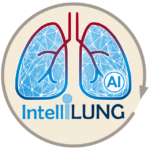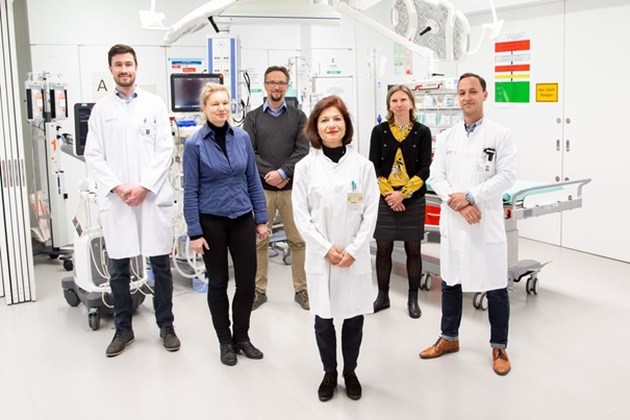Scientists from the Medical Faculty, together with 13 international partners, are testing a decision support system for mechanical ventilation of intensive care patients. The project “Intelligent Lung Support for Mechanically Ventilated Patients in the Intensive Care Unit (IntelliLung)” in EU HORIZON-HLTH-2021 is the first clinical study coordinated by Technische Universität Dresden for which the European Union has approved funds. The five-year research will be supported with a total of 5.98 million euros, of which 1.8 million euros will go to Dresden.
Decision support system based on AI
The goal is to further improve and optimize the mechanical ventilation of intensive care patients. “Over the past two years, together with the Institute for Applied Informatics (InfAI) in Dresden, we have developed a decision support system based on artificial intelligence, which we can now test and expand in clinical practice” says Professor Thea Koch, Director of the Clinic and Polyclinic for Anesthesiology and Intensive Care Therapy and head of the IntelliLung consortium. The decision support system is designed to provide the treatment team with a recommendation for the cessation of mechanical ventilation. “Not only the oxygen supply, but also the respiratory rate and ventilation pressure have to be adjusted again and again depending on the physical condition and the treatment status; this is not a static condition, but a process,” explains Dr. Jakob Wittenstein, who wrote the project proposal with the support of Dr. Robert Huhle and Dr. Martin Scharffenberg of the Pulmonary Engineering Group.
Preventing injuries to the lungs
Optimizing mechanical ventilation is not a simple process. Precision and continuous balancing of the relevant parameters is particularly important to avoid lung damage caused by mechanical ventilation. If the ventilation pressures that are used are too high, there is a risk of mechanical injury within the lungs. If the pressure at the end of exhalation is too low, the lung could collapse, making further ventilation difficult. “We are trying to combine different ventilation parameters in such a way that the end result is a digital decision support system for optimal ventilation,” says Dr. Wittenstein.
Research with direct benefits for patients
The planned start of the project is September 2022. The project consortium that consists of scientists across 14 different national and international hospitals, research institutes and companies, have five years to optimize a procedure based on artificial intelligence. “In the end, the goal is to minimize ventilation time, thereby shortening the length of stay in the intensive care unit and also reducing lethality,” summarizes Dr. Wittenstein. The team plans two studies: Retrospectively, they will use data from former invasively ventilated patients; at the same time, current data will be collected and evaluated in a prospective study. In addition to the clinical and academic partners, the project also involves two manufacturers of ventilation technology.
“Especially COVID-19, which led to lung function impairment for many patients, has shown us how challenging this clinical field is. The IntelliLung project will make a significant contribution to increasing treatment success in the medium term. The approval of the EU funding is a great success for the Medical Faculty Department, not only because of the amount of nearly six million euros,” says Professor Michael Albrecht, CEO of Dresden’s Carl Gustav Carus University Hospital.
“IntelliLung is the first time that EU funding has been secured for a clinical trial coordinated by the Technische Universität Dresden, and in particular the Medical Faculty. This is a great success for which I would like to warmly congratulate the project participants and wish them every success in their scientific work,” says Professor Esther Troost as Dean of the Medical Faculty Dresden.

